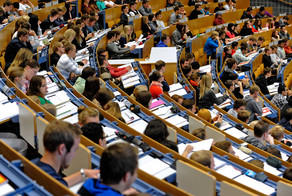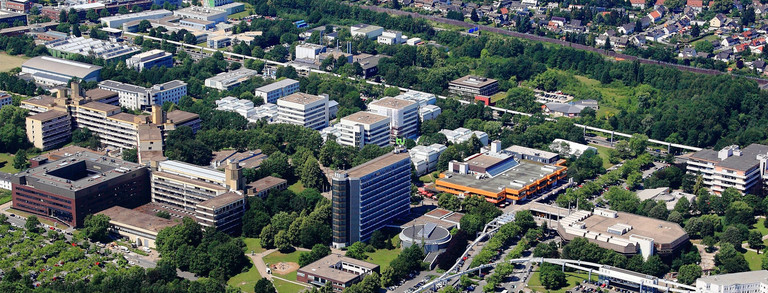Dr. Carolin Kunz

Consultation hours
By appointment
Contact
Research focus
- Working conditions and health
Research interests
- health
- quantitative methods of empirical social research
- work
- digitalisation
- (new) forms of work
- social structure analysis
Career
-
Since 06/2021
Post-Doc, Chair of Human Resource Development and Change Management, TU Dortmund - Since 02/2021
Post-Doc, Chair of Prof. Dr. Martina Brandt, TU Dortmund
- 01/2020 – 04/2020
Lectureship in Sociology, Hochschule für Polizei und öffentliche Verwaltung NRW - 04/2014 – 01/2021
Teacher for special tasks, Faculty for Sociology at Universität Bielefeld
Activity: teaching events in Bachelor and Master in the areas methods of emprical social research (quantitative) as well as social structure analysis (especially social and health inequality)
- 10/2016 – 03/2020
Promotion on health-related work loads
Title: Occupational Gratification Crises, Marketized Forms of Work and Health - An Application and Extension of the Model of Occupational Gratification Crises by Marketized Forms of Work on the Basis of the Socio-Economic Panel - 10/2008 – 03/2013
Master, Sociology - 01/2009 – 07/2009
Erasmus- abroad semester, Université Libre de Bruxelles - 10/2005 – 09/2008
Bachelor Sociology, Universität Bielefeld
Publications
Kunz, C. (2021): Der Ton macht die Promotion? Ergebnisse der Online-Befragung der Promovierenden an der Universität Bielefeld 2020, BGHS Working Paper Series, 8, Bielefeld: Bielefeld Graduate School in History and Sociology (BGHS).
Kunz, C. (2020): Berufliche Gratifikationskrisen, vermarktlichte Arbeitsformen und Gesundheit - Eine Anwendung und Erweiterung des Modells beruflicher Gratifikationskrisen um vermarktlichte Arbeitsformen auf Basis des Sozio-oekonomischen Panels, Bielefeld: Universität Bielefeld.
Kunz, C. (2019): The influence of working conditions on health satisfaction, physical and mental health: testing the effort-reward imbalance (ERI) model and its moderation with over-commitment using a representative sample of German employees (GSOEP), BMC Public Health, 19(1), 1009.
2019 „Das Modell beruflicher Gratifikationskrisen und freiwillige Selbstausbeutung: Vereinbar zur Erklärung gesundheitlicher Ungleichheit?", Gemeinsame Jahrestagung der DGMS und DGSMP. Düsseldorf.
2018 „Updates zur Messung beruflicher Gratifikationskrisen". Dreiländerkongress: Soziologische Analysen von Arbeit und Gesundheit. Graz.






